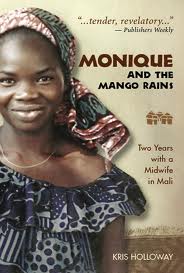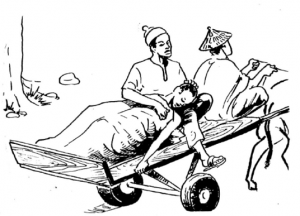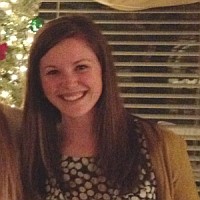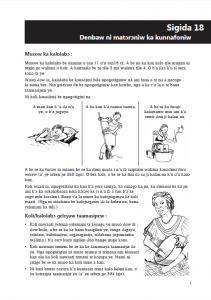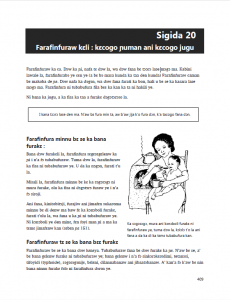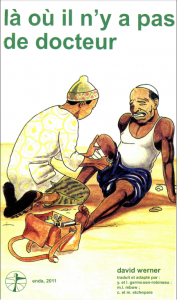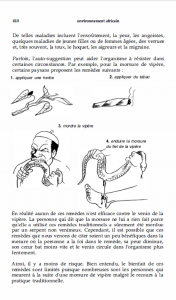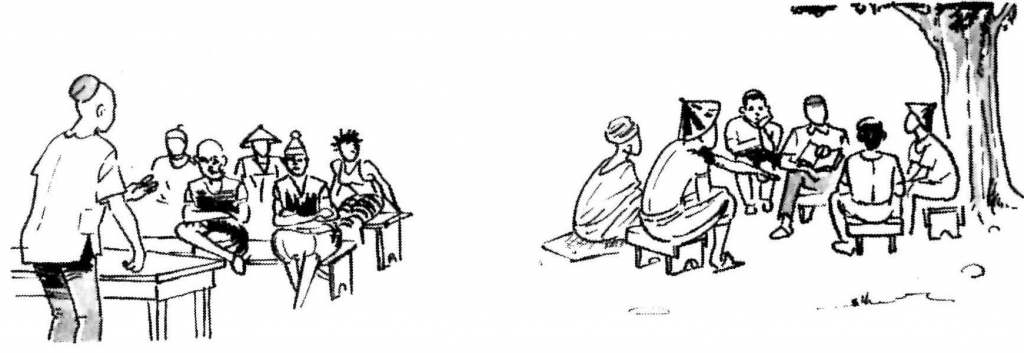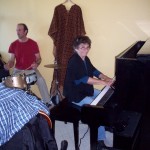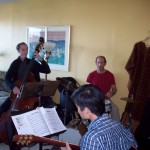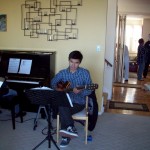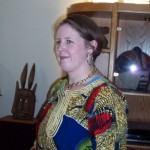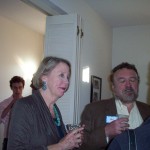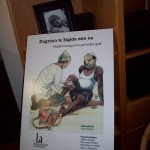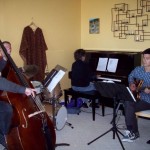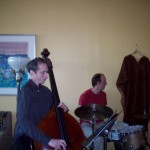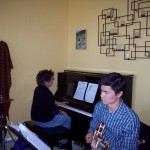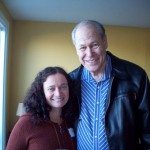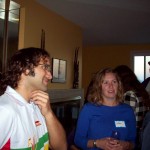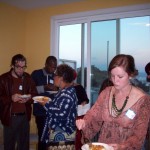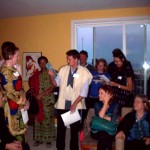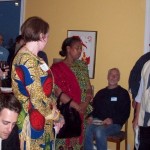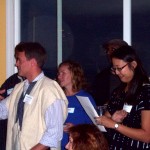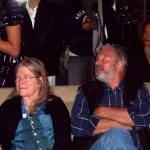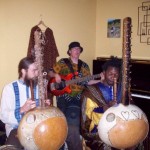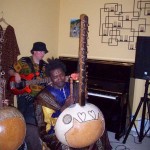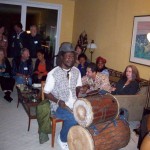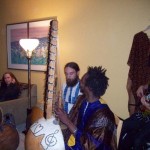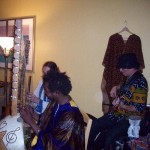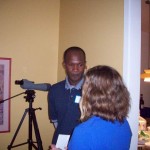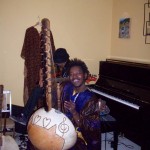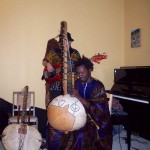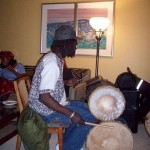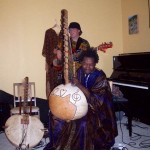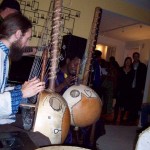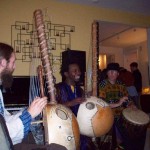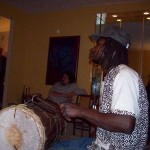Special Edition, February 2013
From the editor
The Friends of Mali organization has been in hibernation for the last several years, but there are efforts afoot to rejuvenate the organization (on Facebook here, or read more below). Given recent events, I think you’ll agree: Mali needs more friends in the international community, now more than ever. The old Friends of Mali website is still online thanks to Jeff Spivack (Mopti Region, 1996–98), and while it is no longer actively updated, it still contains a few interesting items. Our purpose in writing now is to reconnect the community, and to invite you to help us re-launch the organization, either as an organizer, member, or supporter.
—Marlow Schindler, Sikasso Region 2011–12
In this edition:
- Re-Invigorating Friends of Mali
- Translating Where There Is No Doctor into Bambara
- Other Ways to Help
- News & Information from Mali (in English)
- News & Information from Mali en français
- Update from Peace Corps Mali
- Malian Musicians on Tour in 2013
Re-Invigorating Friends of Mali
Dozens of country-of service groups help connect Peace Corps alumni and help carry out the Third Goal of Peace Corps: “to help Americans understand the people and cultures of other countries.”
The Friends of Mali group has come and gone at least twice over the years, and was last active about 8 or 9 years ago. In 2003, the Friends of Mali sent dozens of volunteers to participate in Smithsonian’s Folklife Festival, which highlighted the art, music, and culture of Mali. At the time, the organization was quite official: we had bylaws, elections, dues-paying members, a printed newsletter, and a state-of-the-art (for the time) website. A new incarnation for Friends of Mali could look similar, or it could be something simpler, like a Facebook page where people can share photos, links, and information.

If you are interested in re-launching Friends of Mali, or just want to stay in touch, click “like” on the new Facebook page. If you’re not on Facebook, you can contact Jumana Qamruddin (Segou region, 1998–2000).
Most “Friends of” groups are member groups of the National Peace Corps Association. The NPCA welcomes new member groups at any time. Read more about resources and member group benefits at NPCA’s website.
Translating Where There Is No Doctor into Bambara

Who can forget the book Where There Is No Doctor? I inherited a tattered copy at my site, which was a frequent source of amusement and horror. Of course, no one in my village could read or understand English, but its illustrations were occasionally useful to communicate health-related subjects. And unfortunately, I sometimes needed it for self-diagnosis (Yikes, what’s that rash?).

In April 2012, a group of volunteers – most of us Mali RPCVs – started the Dokotoro Project, to adapt and translate Where There Is No Doctor into Bambara. We are working closely with the book’s publisher, Hesperian Health Guides, based in Berkeley, California. Our goal is to make the book available in Bambara, as well as to create bilingual editions in French-Bambara and English-Bambara.
Dokotoro Project volunteer Michelle Chan observed, “We all believe that everyone deserves adequate health care, no matter where they live. In Mali, a woman is 25 times as likely to die from pregnancy and childbirth as a woman in the United States, and that needs to change.”
The translation work is being done in Bamako by a dedicated team of professional translators, all former PC Mali language instructors. We have finished two chapters, and they have been expertly laid out by professional medical illustrator and designer Ruth McDonald (Mali, 2003–04) and are posted on the Dokotoro website for feedback.

We need your help! We could particularly use additional tubabukan experts for French translation, or anyone with a medical background or recent experience with medicine in Mali. To volunteer, contact Jenna Lohmann (Koulikoro region 2011–12) at jenna@dokotoro.org.
And of course, we need more money. We’ve already raised over $9,000, but we need about $30,000 total for translation, editing, and field-testing. Please consider making an online donation through First Giving, or send a check to the address here.
We’d love to hear from you! How did you use Where There is No Doctor? What would you do to make it better suited for Mali? Drop us a line and stay in touch at our website dokotoro.org, like us on Facebook, or follow us on Twitter.
—Matthew Heberger, Segou Region 1996–1998
Other Ways to Help
Since the outbreak of violence in northern Mali in January 2012, thousands of northern Malians have been forced to flee from their homes. The situation is only getting worse with the recent escalation of hostilities. Estimates of the number of refugees vary, but Doctors without Borders estimated that 260,000 had fled their homes as of April 2012.
Refugee camps in Niger and Mauritania are crowded, and the living conditions are difficult. Much of the region suffered from drought over the last two years, increasing the difficulty of providing food and water for refugees.

The needs in Mali are great. Please consider donating to an organization you believe in. Here are several reputable organizations active in providing aid and relief to refugees in Mali and neighboring countries. Agencies working in the region include, but are certainly not limited to:
- Catholic Relief Services
- Doctors without Borders (Médecins sans Frontières).
- International Committee of the Red Cross (choose Niamey—covers Mali and Niger).
- Relief International
- Oxfam
- Save the Children
- UNHCR
- World Food Program
- World Vision
News & Information from Mali (in English)
The Facebook group “All Mali, All the Time” is an active community, whose 900+ members post links, news announcements, etc. The 1,000-member group Americans and Friends in Mali has a similar makeup.
Bridges from Bamako is a blog by Mali RPCV (1997-1999) Bruce Whitehouse, professor of anthropology at Lehigh University in Pennsylvania. Bruce was on a Fulbright Fellowship in 2012 and living with his family in Bamako when the coup took place and violence broke out. During the coup Bruce posted frequent updates to his blog, including excerpts from the Malian media and “man on the street” viewpoints. He continues to post occasional essays and insightful analysis.
Gregory Mann — A historian of francophone West Africa at Columbia University, Dr. Mann occasionally posts articles at the news and opinion blog “Africa Is a Country.”
Peter Tinti — Another Mali RPCV and a freelance journalist who splits his time between Bamako and Dakar, and reports for the Associated Press, Christian Science Monitor, and others. His articles are compiled at ptinti.com.

News & Information from Mali en français
Of course, there are plenty of online sources to read news from Mali in French.
Maliweb.net is a rich, frequently updated news site. It is a clipping service that links to articles from many French-language sites in France, Mali, and elsewhere.
Radio France Internationale’s Africa coverage — For up to the minute coverage of the hostilities, RFI has published “Mali: suivez les événements en direct” which is updated constantly throughout the day.
Update from Peace Corps Mali
Activities suspended in April 2012
More than 2,600 Peace Corps volunteers have served in Mali since the program was established in 1971. However, the program has undergone and is continuing to experience dramatic changes since the military coup in March 2012, which prompted Peace Corps to evacuate all 186 volunteers in country and suspend any admission of new volunteers until the political situation is stabilized.
The loss of all volunteers and related activities has resulted in corresponding scaling-back of Peace Corps Mali staff, infrastructure, and programming.

The Kayes, Segou, and Mopti regional houses have closed, leaving the Kita, Sikasso, Bamako, and Dioila houses open. Peace Corps is maintaining these houses in the hopes of bringing in a new stage as soon as is safe and reasonable.
Training staff have re-organized the programs and plan to move forward with four sectors: Water, Sanitation, and Hygiene; Community Economic Development; Agro-forestry; and Education. They have decided to suspend the Health Education program for the time being.
As for future volunteers, the current Director for Programming and Training, Jolie Dennis, says that, “The date of Peace Corps Response Volunteers return to Mali is still an unknown given this country is a complete mess in the north and the south these days. If we are lucky, by the end of 2013 or early 2014, but right now we are trying to get through each day and pray the rebels don’t take more government-held territory and that these fools demonstrating en masse knock it off so we can have one stable portion of the country.”

Malian Musicians on Tour in 2013
Despite the troubles at home, many Malian musicians continue to tour all around the globe. Get out to an upcoming concert if you can. What better way is there to celebrate Malian culture and support world-class musicians? Below is a selection of Malian artists with North American tour dates scheduled in 2013. Want to stay tuned for more? Check out Afropop Worldwide. If you’re in the San Francisco Bay Area, visit the African Music Calendar at sf-africa.com.
Fatoumata Diawara—The actor and singer-songwriter behind the recent Mali-Ko project which brought together a who’s who of Malian musicians to call for unity and peace.

Ballaké Sissoko and Vincent Segal—Malian Kora virtuoso Ballaké Sissoko joins French Cellist Vincent Segal are touring to support their new album Chamber Music, hailed by NPR as the “most beautiful world music record of the decade.”

Vieux Farka Touré—The son of the late great Ali Farka Touré, who has become an international star in his own right. His 2012 album the Tel Aviv Sessions with Israeli pianist and composer Idan Raichel was unforgettable.

Habib Koité—A perrennial favorite. In 2013, he appears with American blues musician Eric Bibb on the “Brothers in Bamako” tour, in a stripped-down acoustic show without his regular band Bamada.

Tinariwen—The Tuareg super-group of desert rockers won the world music Grammy in 2012 for their album Tassili.


